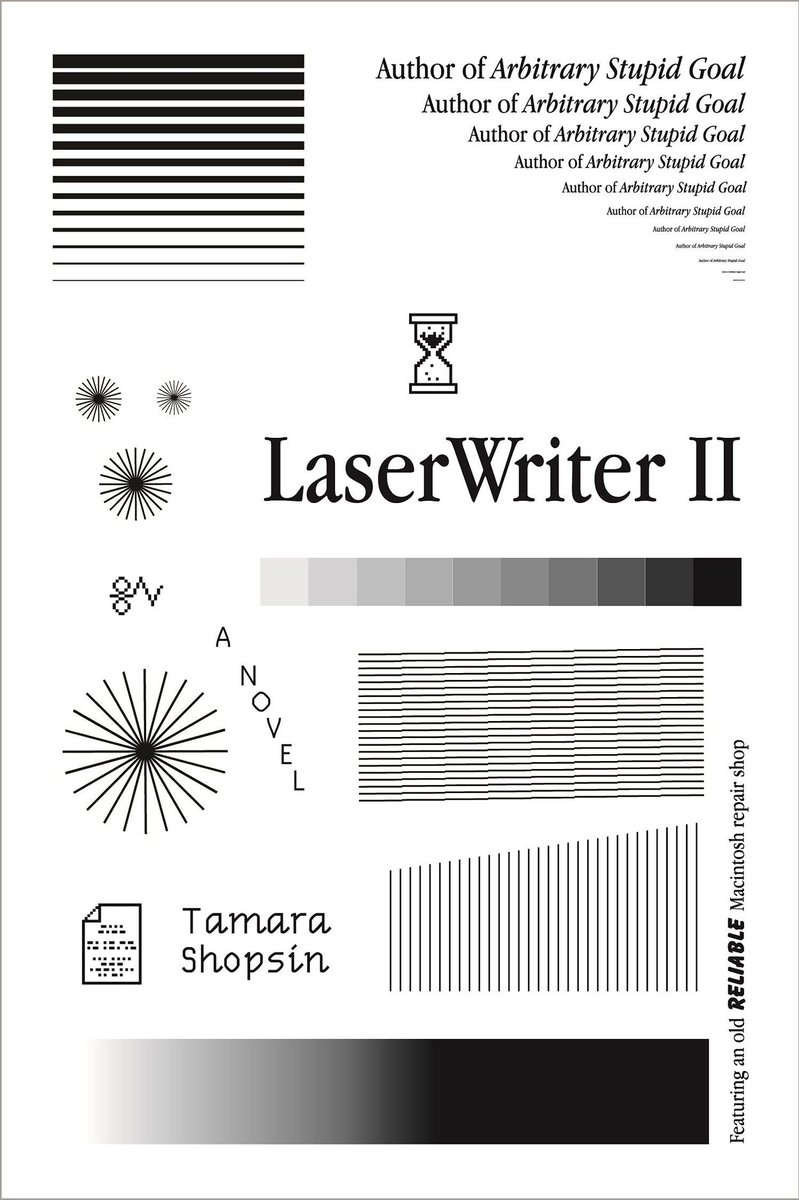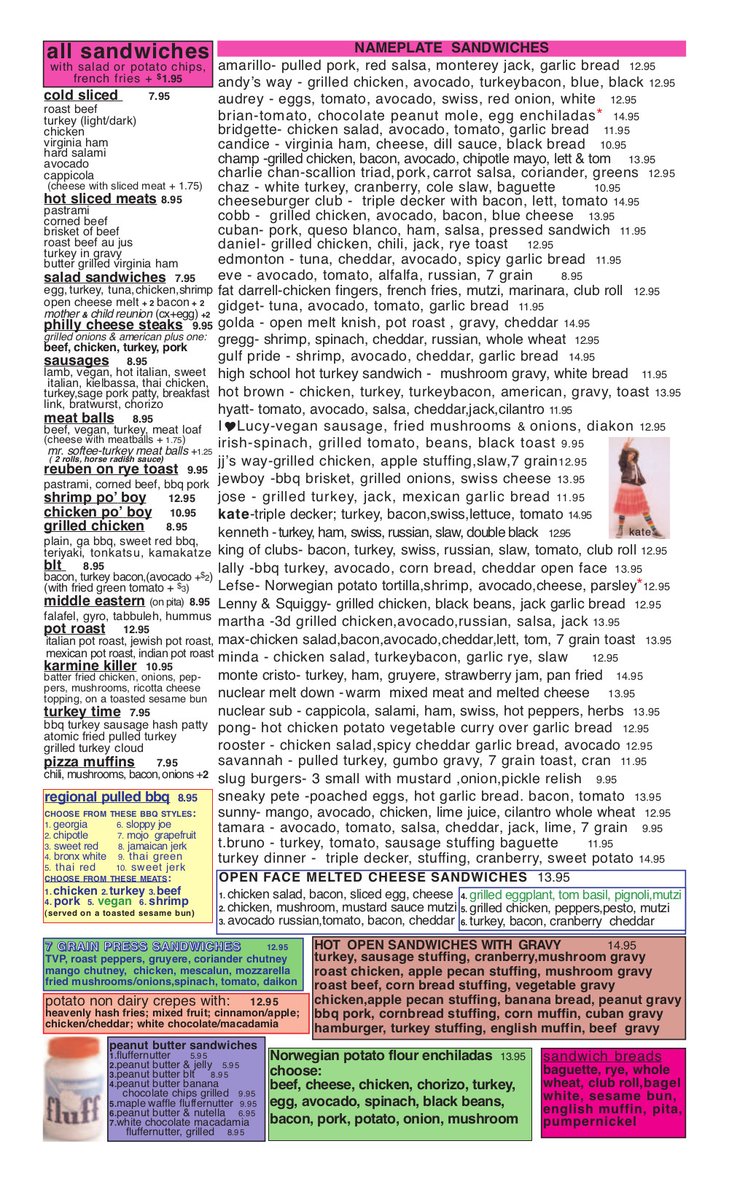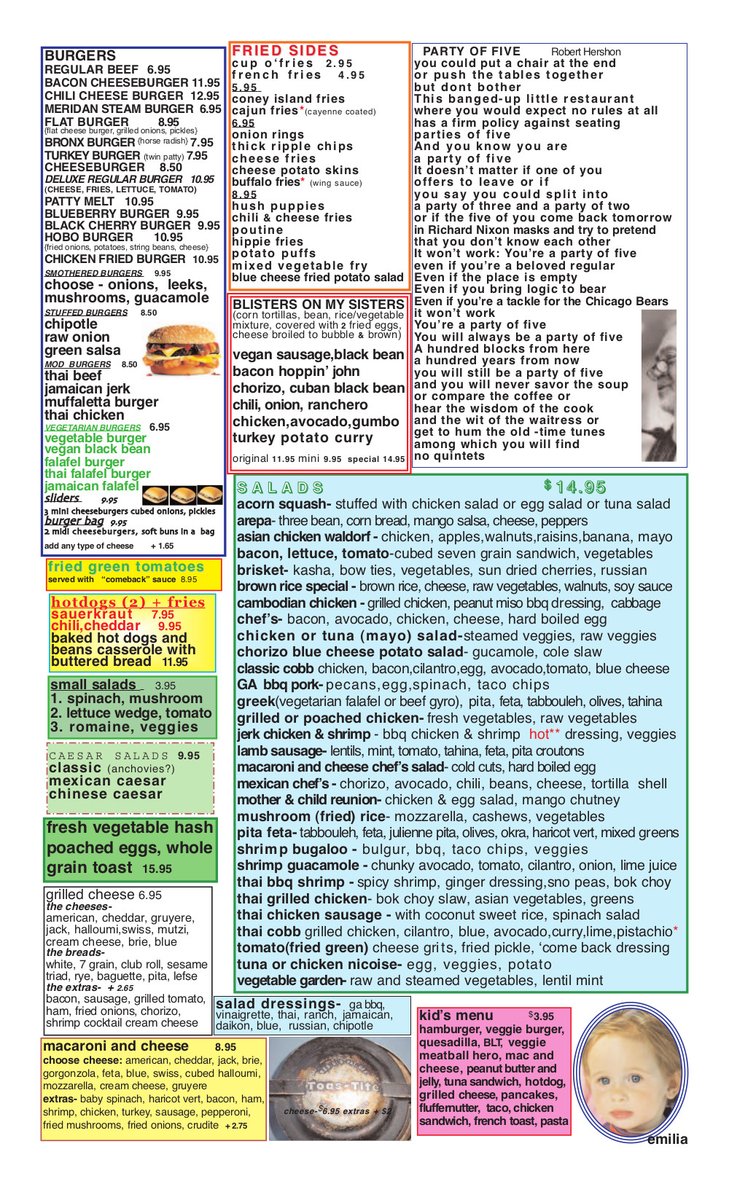
"LaserWriter II" is Tamara Shopsin's fictionalized history of Tekserv, NYC's legendary Apple computer repair store. 1/ 

If you'd like an unrolled version of this thread to read or share, here's a link to it on pluralistic.net, my surveillance-free, ad-free, tracker-free blog:
pluralistic.net/2021/10/29/nor… 2/
pluralistic.net/2021/10/29/nor… 2/
It's a vivid, loving, heartfelt portrait of an heroic moment in the history of personal computing: a moment when computers transformed lives and captured the hearts of people in every field of endeavor.
us.macmillan.com/books/97803746… 3/
us.macmillan.com/books/97803746… 3/
Shopsin, of course, is one of THE Shopsin's, of Shopsin's Restaurant, the famously eccentric, floridly weird, and completely and utterly amazing NYC institution (also: quite possibly the best restaurant in the world). 4/ 







A restaurant whose chef, Kenny Shopsin, blocked all print reviews by the simple expedient of telling any newspaper fact-checkers who rang up that the joint was permanently closed.
memex.craphound.com/2008/10/16/eat… 6/
memex.craphound.com/2008/10/16/eat… 6/
A restaurant, in other words, that is run as much out of a commitment to how things should be as a how they are. Not a mere market-seeking entrepreneurial venture aimed at capturing value, where the customer is always right: rather, a work of passion, integrity and love. 7/
The world was once full of such places: restaurants where the chef served the food they loved, not the food that was most profitable; publishers who published the books the world needed to read; clubs that booked the bands they needed to hear. 8/
Even the largest firms were not exempt from this: Walt Disney won public admiration for lavishing detail on his themepark far beyond anything justifiable under market conditions. 9/
Today, those places have been mostly steamrollered by remorseless financialization, the vampiric process of extracting all slack and kindness, leaving behind a cruel mechanical husk. 10/
The first Apple computers shipped with schematics, Woz's hacker-friendly diagrams that both showed off his brilliant engineering and invited follow-on tinkerers to try their hand at it. 11/
The Mac sealed up the Apple box, but its core apps - Filemaker, Hypercard, and more - invited everyday users to design and share their own tools. 12/
From the Apple ][+ to the Mac, legions of people who didn't think of themselves as "computer users" discovered the life-altering power of creative automation. They fell in love - more, they became obsessed. 13/
As we all know, computers aren't particularly reliable. Steve Jobs's insistence that the Mac ship without a fan created mountains of Macs with burned-out power-supplies. 14/
The creative love-affair with the Mac soured - the computer that seduced and enthralled its owner had betrayed it.
Into that gap sprang Tekserve - a computer repair company run and staffed by misfits, beloved by bike messengers for its $0.10 Coke machine. 15/
Into that gap sprang Tekserve - a computer repair company run and staffed by misfits, beloved by bike messengers for its $0.10 Coke machine. 15/
A place where the UPS guy was always welcome at the weekly catered lunch and where the laser-printer techs will spend an hour on the phone with you, troubleshooting your stuck rollers.
No charge. 16/
No charge. 16/
LaserWriter II is the story of Claire, a 19 year old who stumbles into a job as a laser-printer tech at Tekserv. In some ways, it's a love story, as Claire falls head-over-heels for repair and troubleshooting. 17/
There's romance in understanding how devices work and how they fail. There's heroism in putting them to rights again, beating back entropy and returning them to the people who rely on them. 18/
This is a hymn, then, to the #RightToRepair, to service, and to the frustrating and complicated relationship that humans have to machines, and how that complicates and enhances our relationship to one another. 19/
Shopsin is a tremendous and dryly hilarious writer, whose work I've enjoyed since reading her previous book, Arbitrary Stupid Goal, a memoir of life at Shopsin's:
memex.craphound.com/2017/07/22/arb… 20/
memex.craphound.com/2017/07/22/arb… 20/
In LaserWriter II, Shopsin shows us how she can wield understatement and blunt metaphor together. 21/
The story arc is complexified by the creepy older man, a Tekserv alum, whom Claire is obliged to call upon for help in repairing the legendary LaserWriter 8500 - the biggest and most complex printer Apple ever made. 22/
The creepiness of his persistent advances is painted in muted colors, but no less creepy for it, and serve as reminder of the way that tech culture has pushed talented women to the margins. 23/
As counterpoint to this light-touch social commentary are passages in which Shopsin anthropomorphizes the components of the computers Claire is fixing, their existential dread of the looming repair and their joy at being put back into service. 24/
Notwithstanding the fantasy dialog between printer subassemblies, LaserWriter II is a perfect addition to the techno-realist literature: tales whose drama and arc depend on the real-world capabilities and limitations of real computers in the real world. 25/
Its precision and rigor and matched by its sensitivity and humor. 26/
• • •
Missing some Tweet in this thread? You can try to
force a refresh














